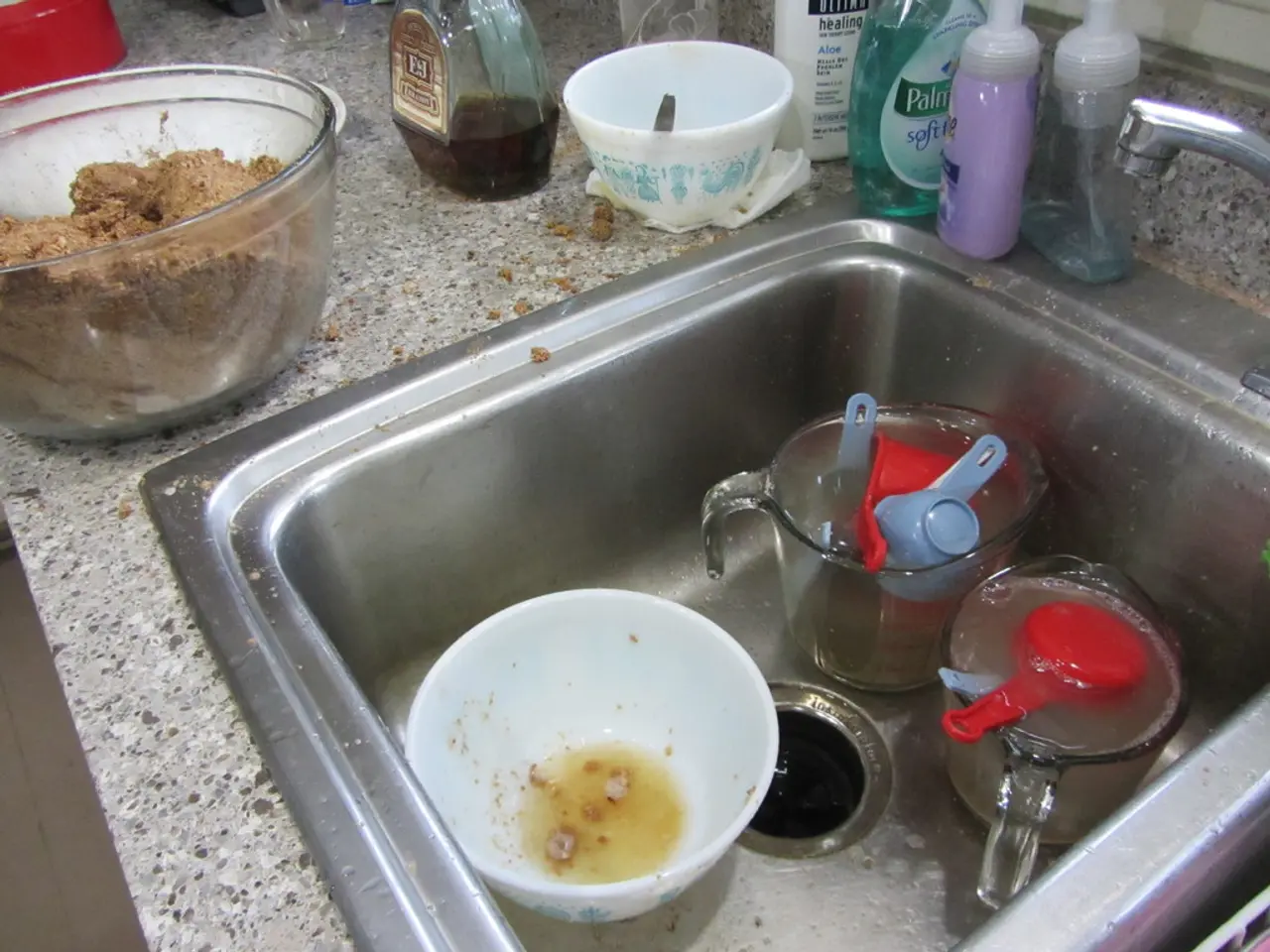Examination of Potential Immunity Weakening Effects from Excessive Cleanliness
In the midst of the ongoing COVID-19 pandemic, there have been numerous discussions and speculations about the role of personal hygiene and its impact on the immune system. While it's true that factors such as stress, diet, exercise, sleep, and avoidance of harmful substances can influence the immune system's ability to fight infections, it's essential to separate facts from myths.
The so-called "hygiene hypothesis" suggests that exposure to more viruses, bacteria, and other pathogens early in life could lead to stronger immune systems. However, Dr. James Fernandez, an allergist and immunologist, notes that while the hypothesis makes theoretical sense, there is not a lot of strong science backing it up. The hygiene hypothesis originated from observations that some developing countries with higher pathogen exposure have lower rates of certain diseases such as allergies and asthma.
Contrary to some rumours circulating on social media, there is no direct scientific evidence indicating that temporarily increasing cleaning and disinfecting practices during the COVID-19 pandemic negatively impacts immune system health. Instead, evidence primarily highlights that COVID-19 itself can cause lasting immune system alterations and that enhanced infection control measures, including disinfecting, have been effective in reducing infection rates and preventing secondary infections in healthcare and community settings.
For instance, COVID-19 infection has been documented to cause long-lasting immune dysfunction, specifically impairing T-cell responses and increasing susceptibility to secondary infections. This immune compromise is related to the viral infection itself rather than cleaning and disinfecting practices. On the other hand, enhanced infection control interventions, such as disinfection protocols, have demonstrably reduced rates of multi-drug resistant organism (MDRO) infections in clinical settings.
Moreover, during the pandemic, infection prevention efforts including thorough cleaning and surface disinfection expanded beyond hospitals into schools and communities, successfully reducing transmission risks and protecting vulnerable populations without documented adverse immune effects from these practices themselves.
It's important to remember that the focus of COVID-19 research strongly emphasizes protecting immunocompromised populations (e.g., transplant recipients) through vaccination and therapeutics rather than linking increased disinfecting to immune harm.
In terms of personal hygiene, the Centers for Disease Control and Prevention (CDC) recommends washing hands with soap and water after being in a public place or after blowing your nose, coughing, or sneezing. If soap and water are not available, use a hand sanitizer containing at least 60% alcohol. Regular exercise and a well-rounded diet with ample amounts of fiber and healthy fats can also help keep inflammation at bay and keep the immune system running smoothly.
However, it's worth noting that washing and sanitizing hands frequently can leave skin dry or cracked, so a good moisturizing lotion should be added to the hand-washing routine. Smoking and excessive drinking can weaken the immune system, so it's crucial to avoid these harmful habits.
Lastly, coping with stress can help reduce inflammation and improve the body's ability to fight off infections. The average adult needs about 7 to 9 hours of sleep a night, and regularly cleaning frequently touched surfaces in the household, such as doorknobs, light switches, countertops, and faucets, is also recommended.
In conclusion, while COVID-19 infection itself can impair immunity, current scientific research supports that increased temporary cleaning and disinfecting during the pandemic are beneficial for infection control and do not have evidence of harming immune system health. The main caveat is proper use to minimize antimicrobial resistance risks. It's essential to separate facts from myths and rely on credible sources for information during these unprecedented times.
- The role of diet, exercise, sleep, and proper hygiene in maintaining a healthy immune system has been the subject of much discussion following the onset of the COVID-19 pandemic.
- Despite the hygiene hypothesis' suggestion that increased exposure to viruses, bacteria, and other pathogens can result in stronger immune systems, there is limited scientific evidence to support this claim.
- Regular skin care, such as moisturizing lotion to combat dry or cracked skin from frequent washing and sanitizing, is important to maintain overall health and wellness.
- Adopting good nutrition habits, including a diet rich in fiber and healthy fats, can help reduce inflammation and support the immune system's ability to function effectively.




